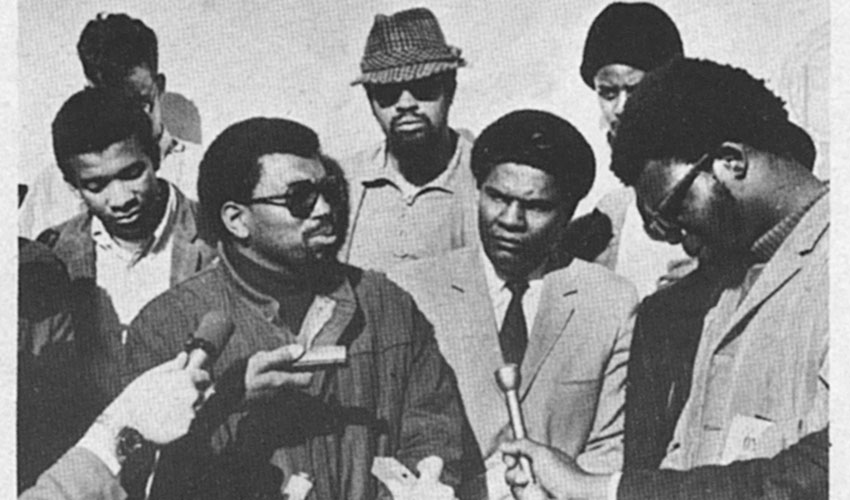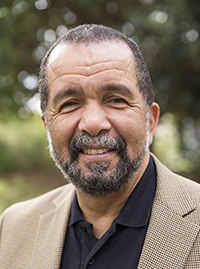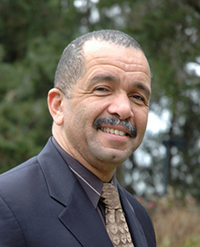SF State hosts national ethnic studies conference

SF State student Benny Stewart and others from the Black Student Union talk to reporters in 1968. A five-month student strike partially led by the organization led to the formation of the College of Ethnic Studies.
Ethnic studies ‘coming home’ to SF State as organizers prepare to host national conference for first time
Five decades after the College of Ethnic Studies was founded at San Francisco State University, professors, students and community organizers from around the United States are gathering here to discuss strategies for expanding and defending ethnic studies programs.
The National Association of Ethnic Studies conference begins on campus on Thursday, March 23, with workshops, roundtable discussions, films and more than 70 sessions offered over three days. The conference is being held 48 years after the founding of SF State’s College of Ethnic Studies, the first and only free-standing college in the nation.
“It’s coming home to the mothership, in a sense,” said Kenneth Monteiro, dean of the college.
A student-led strike that began in November 1968 laid the groundwork for the College of Ethnic Studies and inspired the establishment of ethnic studies classes and programs at other universities around the country.
Protestors spoke out against lack of access, misrepresentation and the overall neglect of indigenous peoples and people of color within the University's curriculum and programs. Their demands included the establishment of four departments: American Indian Studies, Asian American Studies, Black Studies and La Raza Studies.
This is the first time SF State is hosting the conference, and it comes six months after California Gov. Jerry Brown signed legislation requiring the state to adopt a model curriculum in ethnic studies. The law cited “a growing body of academic research that shows the importance of culturally meaningful and relevant curriculum.”
The research found that ethnic studies can help students become more academically engaged, increase their performance on academic tests, improve their graduation rates and develop a sense of personal empowerment, the bill said.
For SF State alumnus and 2016 undergraduate commencement speaker Richard Polote, taking an African American history course was a powerful motivator that drove him to take a similar course and then to enter the Africana Studies program at SF State. It changed his outlook on the world, he said.
“I realized that there was so much history that I didn’t even know about,” he said. “Growing up in the South, in Georgia, I experienced a lot of racism and saw a lot of inequality. But I just didn’t know any better because that’s what I grew up with. I was born into it.”
Organizers are planning for between 350 and 500 people to attend, said Andrew Jolivette, professor of American Indian Studies and one of the conference’s co-chairs.
The recent election of Donald Trump and his administration’s efforts to restrict immigration and target minority communities has had an impact on the content of the conference.
Belinda Reyes, SF State associate professor of Latina/Latino Studies and the director of the Cesar E. Chavez Institute, will lead a session titled “Immigrants Finding Citizenship in a Xenophobic World.” That panel will include a talk by SF State Assistant Professor of Sociology Marla A. Ramirez on what lessons could be learned from mass deportations of Mexicans and Mexican-Americans in the 1930s as the Trump administration moves forward with its immigration initiatives.
Other sessions will discuss Black Lives Matter, the movement against the North Dakota Access Pipeline and issues facing transgender communities.
Additionally, Special Collections Librarian Meredith Eliassen will lead a workshop on the SF State College Strike Collection that will include print material from the five-month protest spotlighting the Third World Liberation Front.
The conference begins with an opening reception from 6 to 8 p.m. on Thursday, March 23, and will feature local Ohlone leaders, San Francisco Unified School District interim Superintendent Myong Leigh, SF State President Les Wong and Interim Provost Jennifer Summit.
Also on hand will be community leaders and performers and artists, including SF State’s Gospel Choir. Members of the black and Latino alumni associations are invited to attend.

